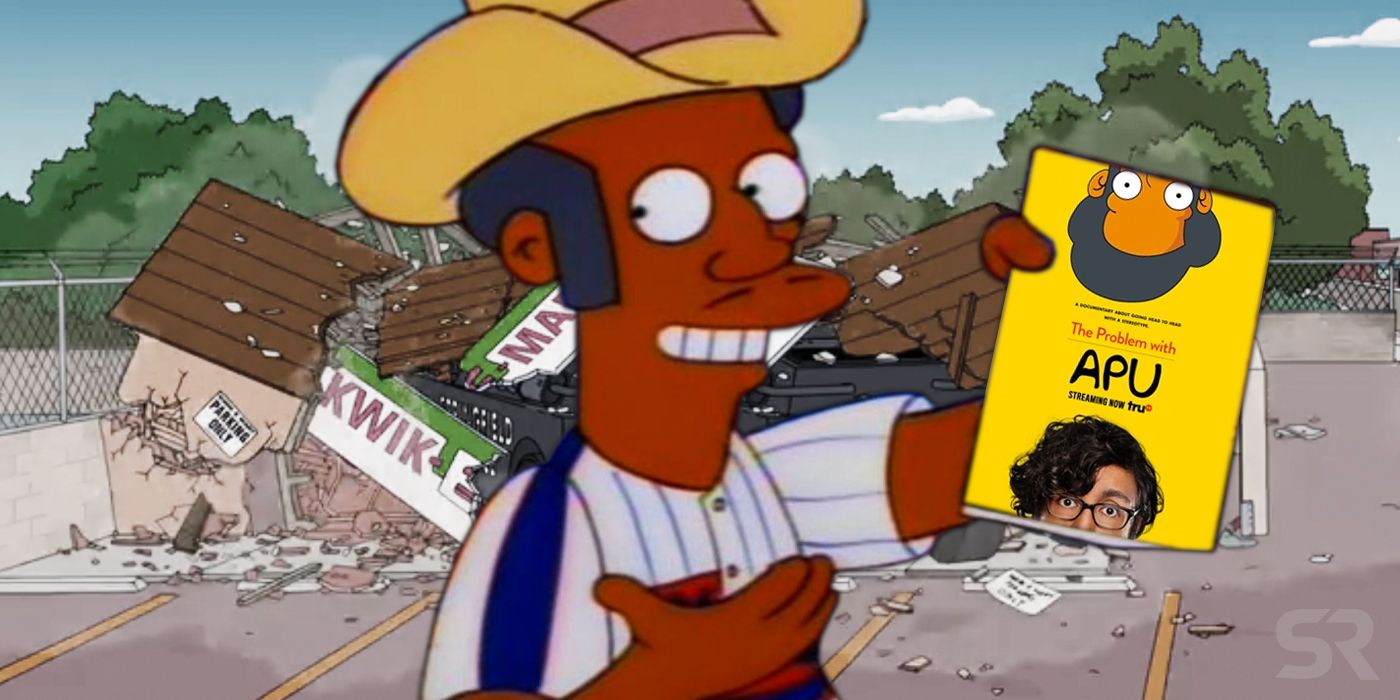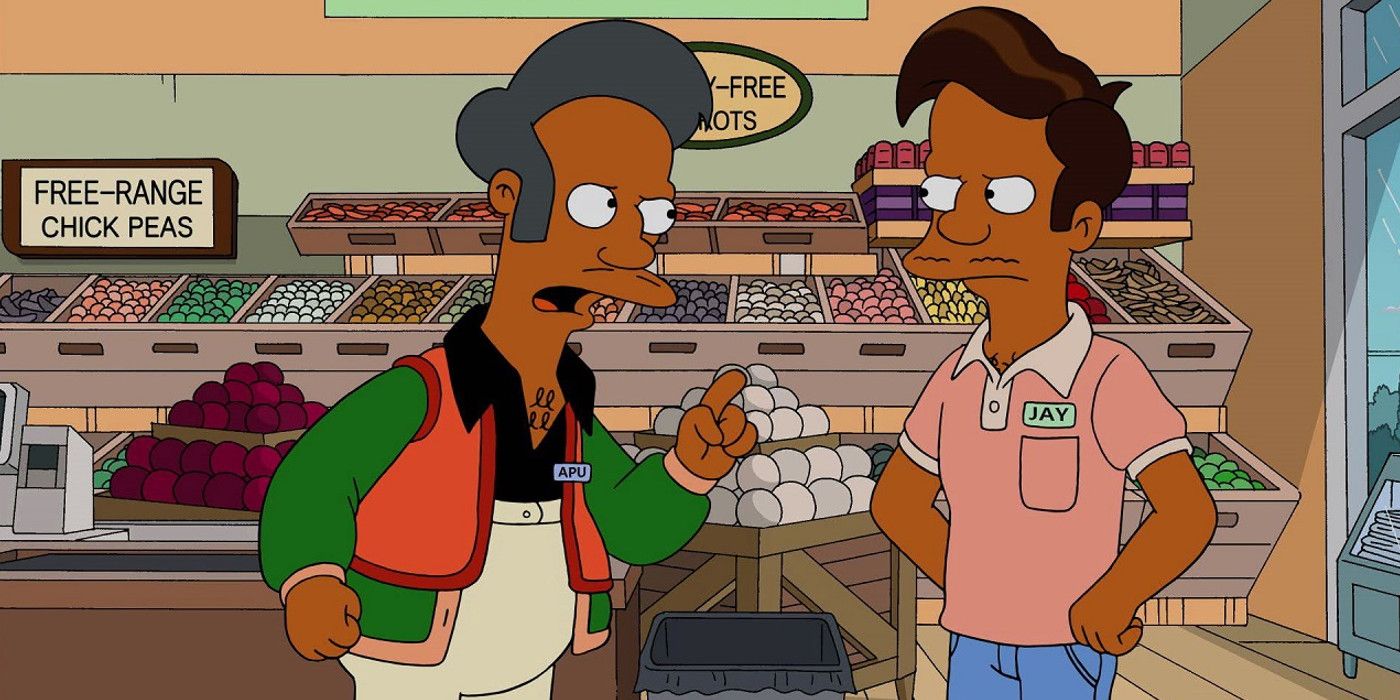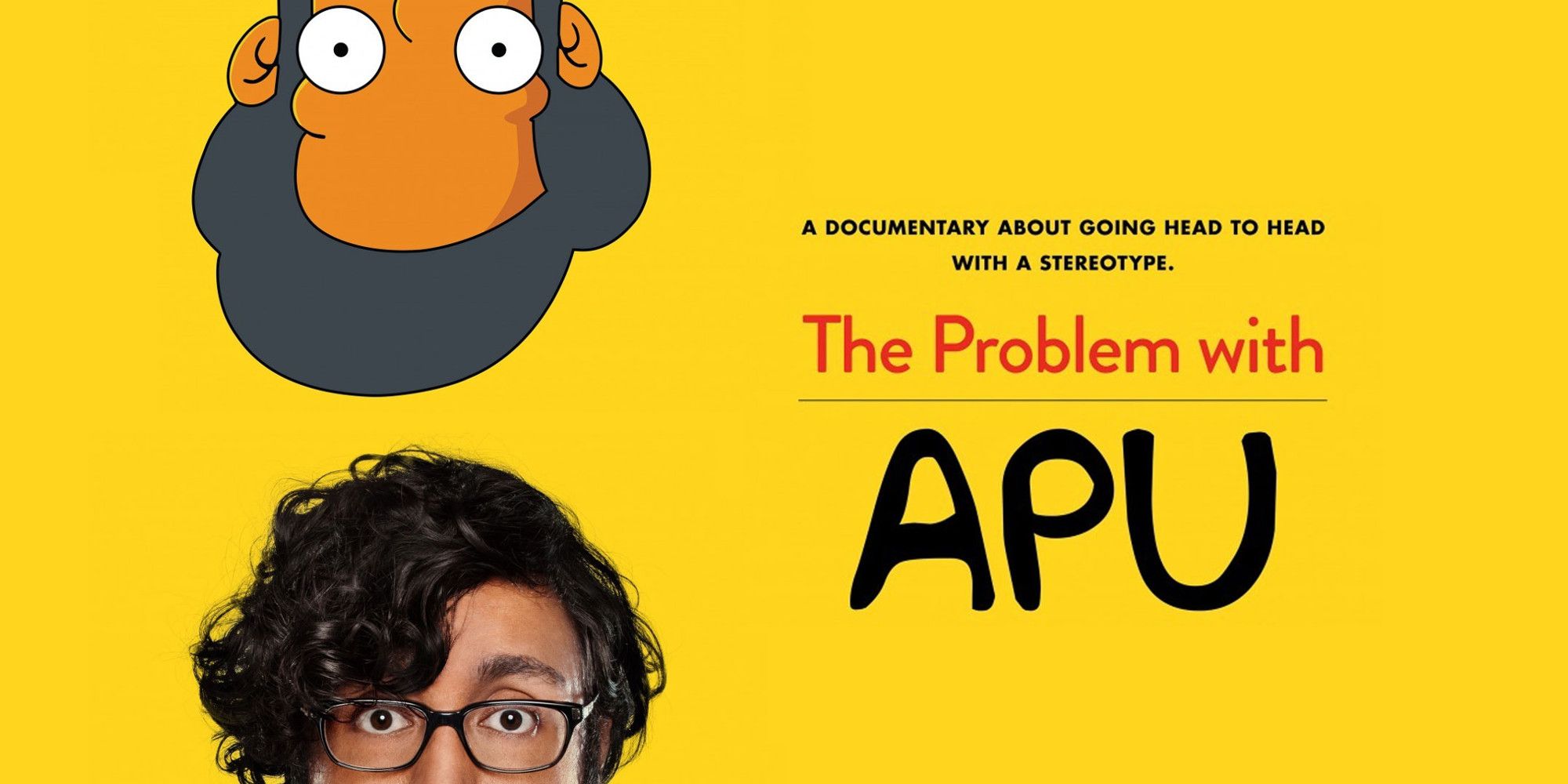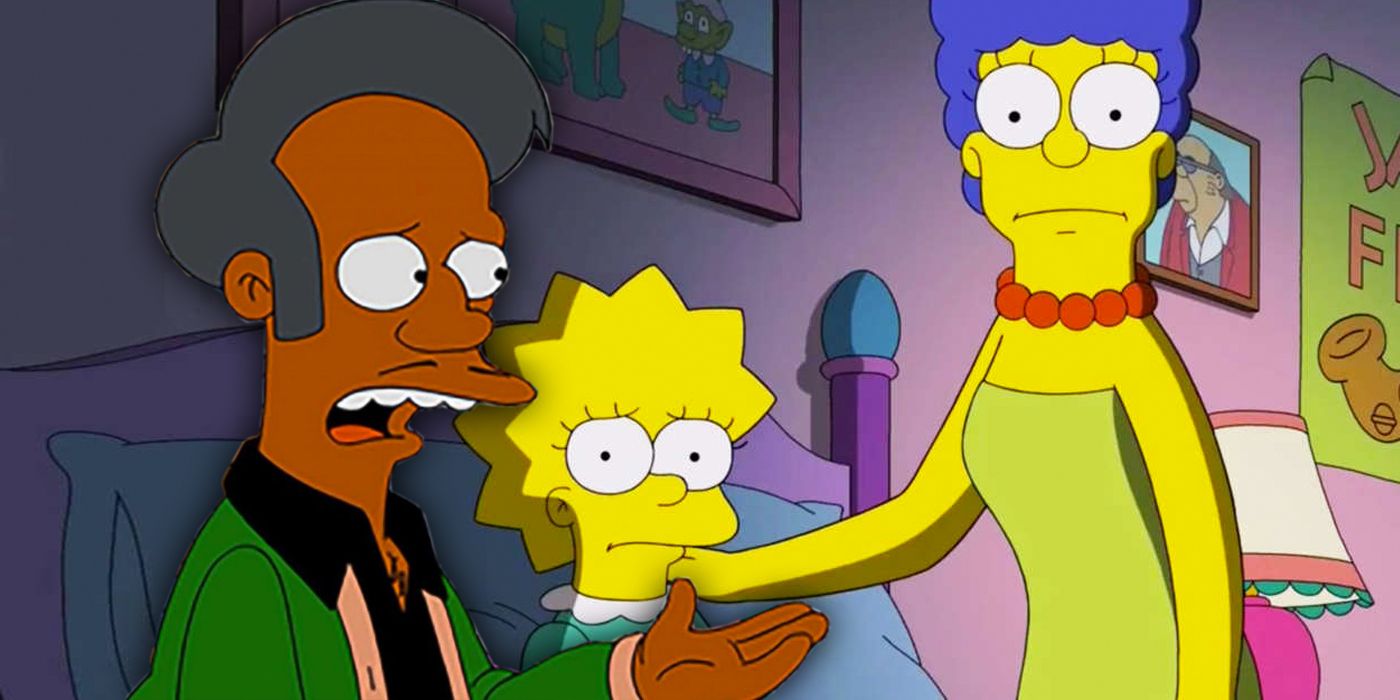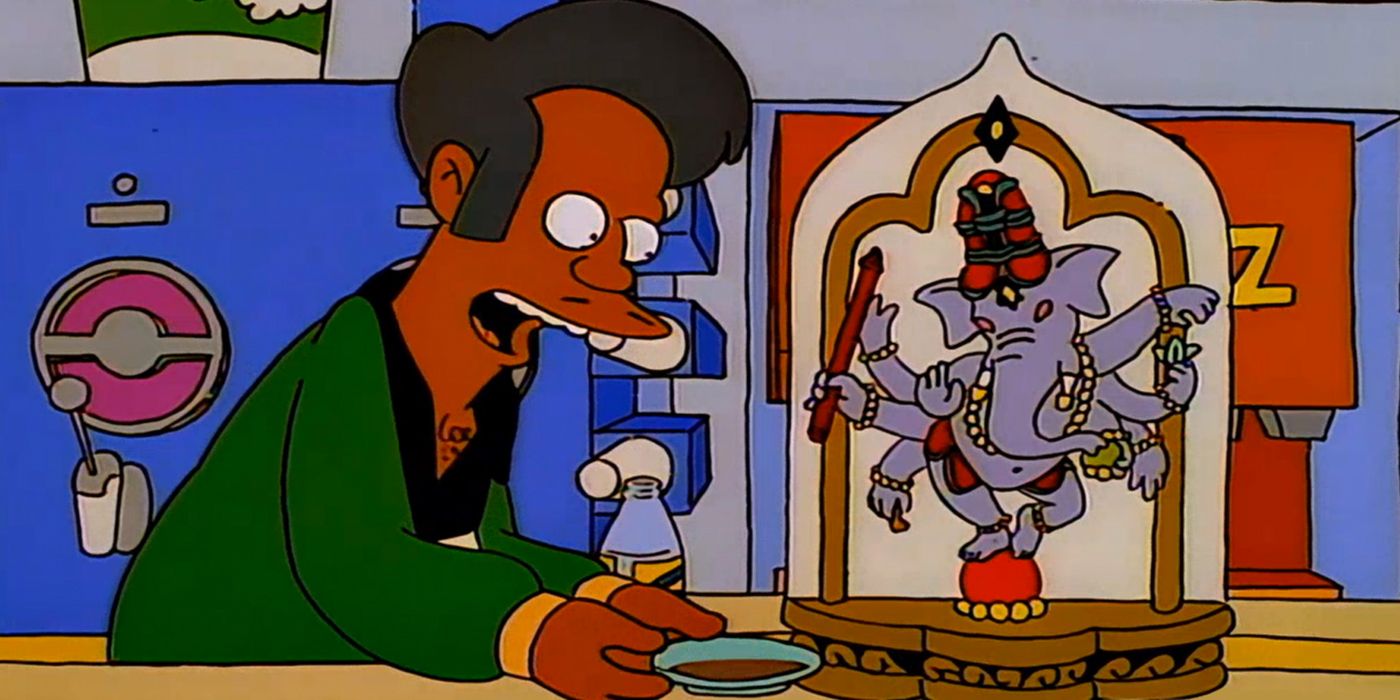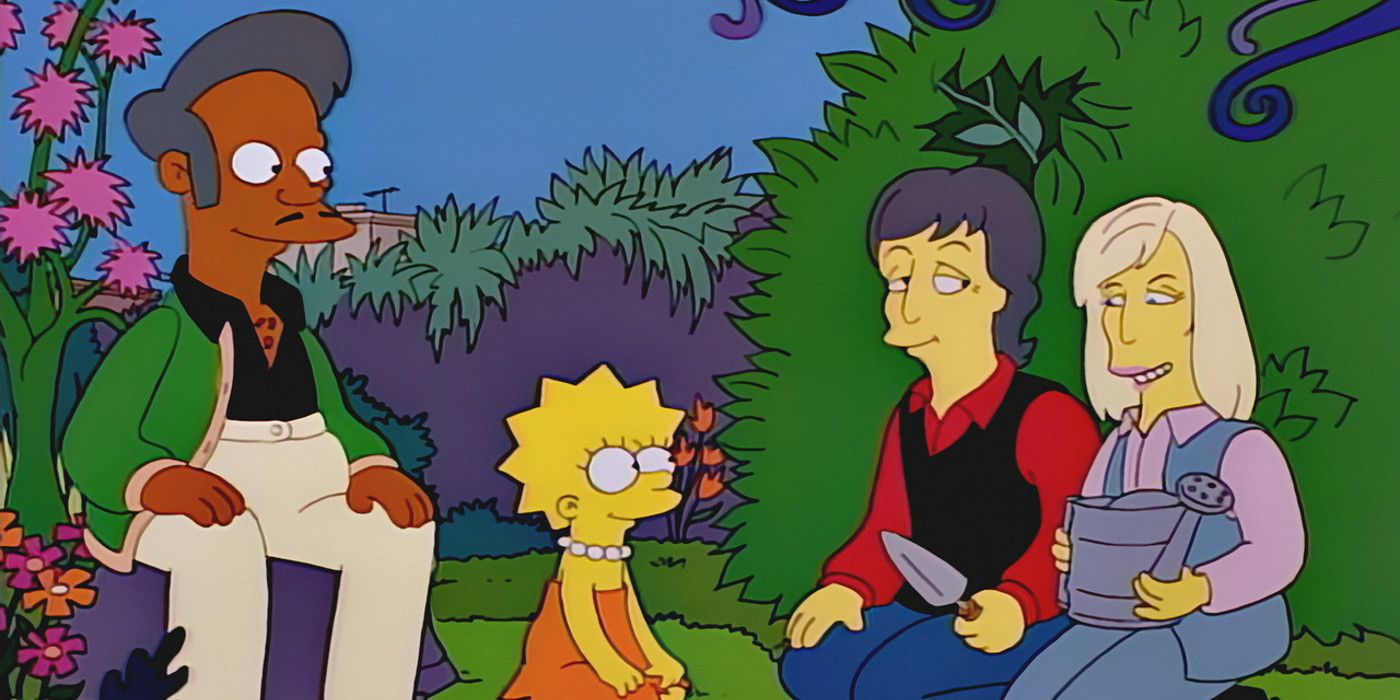The Simpsons' Apu controversy has finally come to a head, with the showrunners of animated series considering officially retiring the character. This followed after years of protest regarding Apu's character from Indian-American advocacy groups.
Though complaints about Apu had existed for years, they increased following the 2017 release of The Problem With Apu - a documentary which explored how the character had been utilized as a negative stereotype against Indian Americans and immigrants. The fact that Apu had originally been introduced and developed as a way to combat racist and religious stereotyping in the 1990s made it all the more ironic that his name was adopted as a slur by racist groups. It didn't help matters that Apu's voice was provided by Hank Azaria, a white actor.
Related: Hank Azaria Willing To Step Down As Apu
Fitting of a show that's been on the air for 30 years, this story goes back a lot further than just the documentary. Here's a timeline of the controversy behind Apu's character and how The Simpsons' attempted to address it, as well as how the eventual outcome is a move for good and for ill.
- This Page: The Simpsons' Apu Controversy Explained
- Page 2: The Real Problem With Apu And The Simpsons
The Simpsons Already Tried To Fix Apu
Though it has been argued that Apu started out as a stereotype of Indian immigrants, being slavishly polite and working at a convenience store, The Simpsons did make an honest effort to develop Apu into a fully developed character that defied cliches. The season 7 episode "Much Apu About Nothing" delved into Apu's background as a young man who traveled to the United States on a student's visa to earn his doctorate in Computer Science. With that accomplished, he remained in the country illegally, continuing to work at the convenience store he managed (which he later purchased, with his older brother Sanjay) so that he could pay off his student loans before leaving America. Apu ultimately decided to take the tests to become an American citizen at the episode's end, showcasing his nature as an essentially honest and hard-working individual.
Despite this development, the show's writing still poked fun at Apu's race and religion as often as it used him as the instrument for making fun of the largely ignorant people of Springfield. While it has been argued that every character on The Simpsons is a stereotype of some kind, Apu is unique in that only he has had his name adopted as a racial slur against immigrants in general and Indian-Americans in specific. Many have also complained that Apu largely bears the abuse and ignorance he is dealt with quiet good humor rather than confronting people on their bad behavior.
The Simpsons showrunners were aware of these complaints and attempted to address them in "Much Apu About Something" - an episode that was written in 2014 but did not air until January 2016. The episode saw Apu lose control of his store to his Millennial nephew, Jamshed (voiced by Utkarsh Ambudkar, who played Donald in Pitch Perfect), who complained of Apu's stereotypical behavior. Apu, in a thinly veiled metatextual defense of his status as one of the first portrayals of an Indian-American character on television, complained that Jamshed didn't appreciate everything Apu had given him. The episode ended with the two making amends and Apu reclaiming control of the convenience store, at which point Apu was quietly retired from the show apart from a few non-speaking cameos in crowd scenes.
Related: South Park Slams Simpsons Over Apu Response
The Problem With Apu Documentary Explained
Released in 2017, The Problem With Apu was a documentary written and hosted by stand-up comedian Hari Kondabolu. The film documented Kondabolu's history as a fan of The Simpsons and how, as a child, he loved the character of Apu as one of the few representations of an Indian-American on television but how the positive traits of the character were overshadowed by the racism he experienced because of white producers and directors expecting him to act and sound like Apu. Kondabolu goes on to document similar experiences from other famous Indian-American performers, including Kal Penn (Harold & Kumar), Aasif Mandvi (The Daily Show), Hasan Minhaj (The Daily Show), and Sakina Jaffrey (House of Cards).
Widely acclaimed by critics and the public, the points of The Problem With Apu fell on largely deaf ears. While Hank Azaria expressed his sympathy for everyone who had been mistreated because of the character and showed a willingness to leave the part in favor of an Indian-American actor portraying Apu, The Simpsons' creators were not as willing to work to find an accommodation. Creator Matt Groening dismissed the protest over Apu outright, saying "people love to pretend they’re offended." Producer Mike Reiss was less glib in his comments in an interview on Morning Joe, saying that he had seen The Problem With Apu and thought it was a well-made documentary which raised solid points, but that he considered the matter settled by "Much Apu About Something".
The Simpsons Response To The Problem With Apu
The continuing controversy saw The Simpsons attempt to address The Problem With Apu directly with the episode "No Good Read Goes Unpunished." The episode saw Marge attempting to share one of her favorite books from her childhood with Lisa, who criticized the story for being full of offensive stereotypes and cliches. Marge attempted to edit the story into something politically correct, only for the story to lose all meaning. Lisa sympathizes with Marge's efforts, saying that "Something that started decades ago and was applauded and inoffensive, is now politically incorrect. What can you do?" Marge then says, "Some things will be dealt with at a later date", while Lisa adds, "If at all." As they stare at the viewer, we see a photo of Apu on Lisa's bedside table, with the caption, "Don't have a cow!"
Related: The Simpsons Responded to the Apu Controversy All Wrong
Response to the episode was largely negative, with Hari Kondabolu saying, "Wow. “Politically Incorrect?” That’s the takeaway from my movie & the discussion it sparked? Man, I really loved this show. This is sad." via Twitter. The episode also prompted Indian-American film producer and YouTube personality Adi Shankar - best known for his Bootleg Universe series - to announce a contest to create a script that would solve The Problem With Apu to everyone's satisfaction. It was Shankar's intention to take the winning script and deliver it to the producers of The Simpsons in the hopes that they would make it into an actual episode. If they would not, Shankar promised, he would adapt the script into a future episode of Bootleg Universe.
Page 2 of 2: The Future of Apu And The Simpsons
The Simpsons Is Reportedly Cutting Apu
It seems that Shankar will be making good on his promise, as he has reported that sources at Fox have told him that The Simpsons now intend to formally retire Apu's character. This means that Apu will no longer appear on the show in any capacity, even as a voiceless character in the background or in crowd scenes. While this has yet to be confirmed or denied by The Simpsons' producers, Shankar still criticized them for what he sees as an act of cowardice.
Removing Apu Does Nothing To Solve The Problem
Unfortunately, removing Apu from The Simpsons outright does nothing to solve the underlying problem with the character. Even if Apu never appears in another episode of The Simpsons, there's still nearly 30 seasons worth of material in which Apu figures prominently. Some of the greatest episodes of The Simpsons featured Apu as a central character, even ignoring those episodes like the previously mentioned "Much Apu About Nothing." where Apu's character was utilized to address important social issues, such as discrimination against immigrants.
It also bears consideration that, despite his appropriation by racists as a stereotypical symbol, Apu is still one of the most popular characters on The Simpsons and has done much to present a positive image of an immigrant who comes to America and contributes to his community. Apu was singled out as by author Mark I. Plinksy as "probably the most good-hearted and saintly character on The Simpsons" in his book The Gospel According To The Simpsons. Plinksy sites several examples to justify this assessment, including Apu's being the only person to support Lisa Simpson when she decided to become a vegetarian for moral reasons and his work as a volunteer firefighter. Plinsky also notes that Apu was one of the few adults who treated Springfield's children with respect and that he attempted to stem Lisa's combative tendencies as an activist by advising her that "you can influence people without badgering them."
There is an irony that this message should be lost in all the arguing over what to do about Apu. Nothing can be done to change what the character was in the past and for the show-runners of The Simpsons to remove him from the show now only serves to avoid discussing the problem and leave Apu stuck as a static stereotype. This is precisely what most of the people who have issues with Apu wanted to avoid, preferring to address the controversy head-on and find a way to rework Apu into a character that more accurately accomplishes the original intent of the character - presenting a hard-working Indian-American immigrant who is devout in his faith and giving of himself. Sadly, it seems The Problem With Apu will never be truly addressed in any official capacity now.

